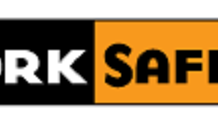WORKSAFEBC provided comment on Wednesday on the sentencing of Vivesh Kochher who pleaded guilty to charges under the Workers Compensation Act and the Occupational Health and Safety Regulation.
WorkSafeBC’s investigation determined that Kochher had failed to ensure the health and safety of between 13 and 15 workers, by knowingly exposing them to asbestos-containing material. The defendant had defied a WorkSafeBC stop-work order, which was issued on September 21, 2019, by a WorkSafeBC Prevention Officer who inspected the site and found asbestos.
WorkSafeBC’s investigation recommended that charges be laid under the Workers Compensation Act and Occupational Health and Safety Regulation. Charges were laid in November 2021 and guilty pleas were entered in March 2022.
A hearing took place in Provincial Court on March 2 and the following sentence was imposed on Kochher:
* A $20,000 fine, plus a victim surcharge.
* Three-year prohibition on owning or operating a waste transfer facility or any other business that involves the management, handling, or disposal of asbestos-containing material.
“More than half of all work-related fatalities are from occupational diseases, of which the majority are from exposure to asbestos,” said Al Johnson, Head of Prevention Services for WorkSafeBC. “We cannot, and will not, tolerate employers endangering the lives of workers. There are profound consequences for this kind of egregious disregard for worker health and safety.”
Asbestos is the number one killer of workers in B.C. In the last 10 years, there were approximately 600 accepted claims for work-related deaths in B.C. because of asbestos exposure.
Regina v. Vivesh Kochher and AVR Drywall Recycling Ltd.
The case of Regina v. Vivesh Kochher and AVR Drywall Recycling Ltd. involved Kochher violating a WorkSafeBC stop-work order in November 2019 by continuing work at an AVR worksite where asbestos was previously detected.
Kochher also brought in a third-party contractor on November 11—a statutory holiday—while the stop-work order was still in place, to remove the asbestos containing material and equipment. The Crown submission stated that, “[i]t should be inferred that the date was chosen by Mr. Kochher because it provided him with a lower likelihood of detection.”
Mr. Kochher did not advise the third-party contractor, or its workers of the presence of asbestos at the worksite, or that there was a stop-work order in place. The defendant did not provide the workers with any personal protective equipment, which is required when dealing with asbestos.
Kochher proceeded to voluntarily dissolve his company, AVR Drywall Recycling Ltd., following the infraction.
Crown counsel submitted that all the above was done with the intention of avoiding the cost and responsibility of cleaning up the asbestos-contaminated worksite. Under the Workers Compensation Act, WorkSafeBC is responsible for conducting investigations into matters of occupational health and safety. An investigation may become a prosecution investigation when certain factors are present, such as a systemic failure to manage workplace health and safety, or where actions taken to ensure worker safety fall significantly below the standard of due diligence.
Background
* Under the Workers’ Compensation Act, WorkSafeBC is responsible for conducting investigations into matters of occupational health and safety and occupational environment.
* In some cases, a prosecution under the Workers’ Compensation Act is warranted.
* WorkSafeBC considers the following criteria prior to commencing a prosecution investigation:
– A reportable incident has occurred and there is evidence that there has been a deliberate disregard for regulatory requirements or worker safety.
– The actions taken to ensure worker safety fell significantly below the standard of due diligence.
– There was a systemic failure to manage workplace health and safety.
– There was a significant prior history of related violations of the Act or Regulation.
– Knowledge that enforcement to date has proven ineffective.
– There are reasons to believe that enforcement methods other than prosecution will not be effective.
* The above criteria are used again at the conclusion of a prosecution investigation to assess whether the case should be referred to Crown Counsel for charge assessment.
* The Criminal Justice Branch has jurisdiction over the approval and prosecution of charges recommended by WorkSafeBC. Crown Counsel’s charge assessment decision is based on consideration of whether there is a substantial likelihood of conviction and if so, whether prosecution is in the public interest.












